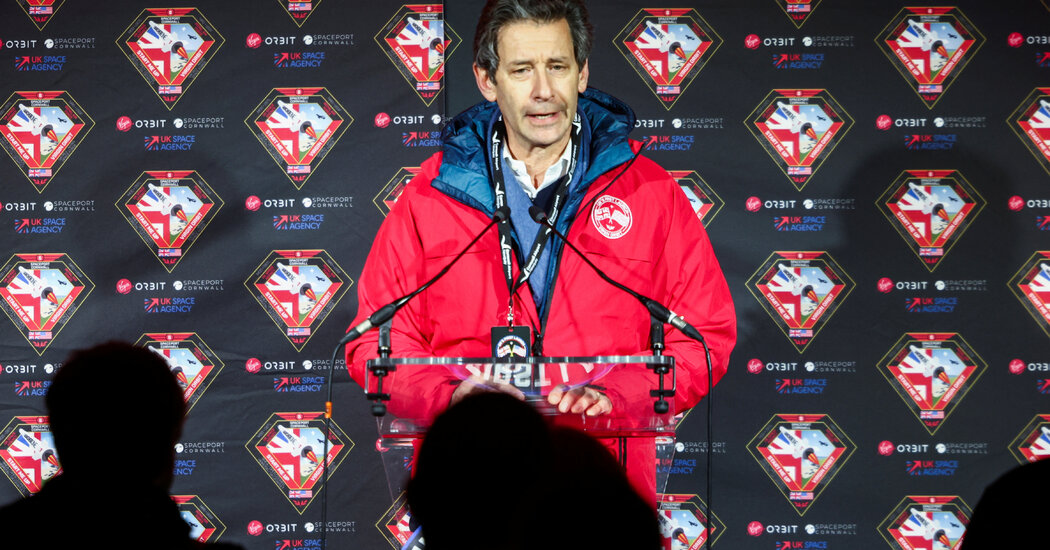An attempt to launch satellites into space from Britain for the first time failed late Monday night, a blow to the country’s nascent space program.
Hours earlier, the British space community was brimming with optimism. As a paying crowd watched, a modified Boeing 747 carrying a rocket filled with nine satellites took off from an airport in Cornwall in southwest England.
Then things soured. The missile successfully separated from the aircraft and fired the first stage engine. But traveling at more than 11,000 miles per hour, the rocket “encountered an anomaly, which ended the mission prematurely,” according to Virgin Orbit, the California-based company behind the launch.
While the 747 and its crew returned safely, the nine satellites aboard the rocket were lost. The destruction of these high-tech devices means that their makers and sponsors may have lost years of work.
Space launch failures are not uncommon, and it seems unlikely that this will deter Britain’s attempt to become a country that can not only make satellites, but launch them. “Walking back from the airport, I had a distinctly stoic and resilient sense that this wasn’t the end,” said Emma Jones, the British business director of RHEA Group, a Belgian space security company, which lost a navigation satellite on the Virgin Orbit rocket. .
Still, the failure of the mission was undoubtedly a setback for the participants. Among those that took a hit was In-Space Missions, a British satellite maker. A team from the company had spent the last few years making some small launch monitoring equipment, funded by agencies from the British Ministry of Defense and the US Army.
“Our two satellites would have been two of the most complex and magnificent satellites in the night sky,” said Doug Liddle, CEO of the company. “Losing those is very shocking to everyone.” Most of the equipment on board was likely uninsured, he said.
Still, British officials and people in the aerospace industry say that while the launch went awry, it represented important advances. To host the launch, Britain has had to develop both the necessary infrastructure and regulatory regimes, a lengthy process.
“We just didn’t quite cross the line, but we almost got there,” said Mr. Liddle.
While it’s hard to say what impact Monday’s failed launch could have on future funding in Britain, the country’s aerospace industry is gaining momentum. Preparations for vertical rocket launches are already underway at two locations in Scotland.
Virgin Orbit, founded by British entrepreneur Richard Branson, also seems inclined to return, although Dan Hart, the company’s CEO, said in an interview just before the failure that the UK launch was an “expensive undertaking”. due to the need to work out logistical and regulatory matters.
Operating out of Cornwall required the company to move from an established base in California’s Mojave Desert to a new one in wet and windy Europe. “The first time the nature of this mission added layers of complexity that our team professionally endured,” Mr Hart said in a statement following the loss of the rocket and satellites on board.
Virgin Orbit, which has made four successful launches from the Mojave, says it hopes to “return to employment” after conducting an investigation and taking “corrective action”.

